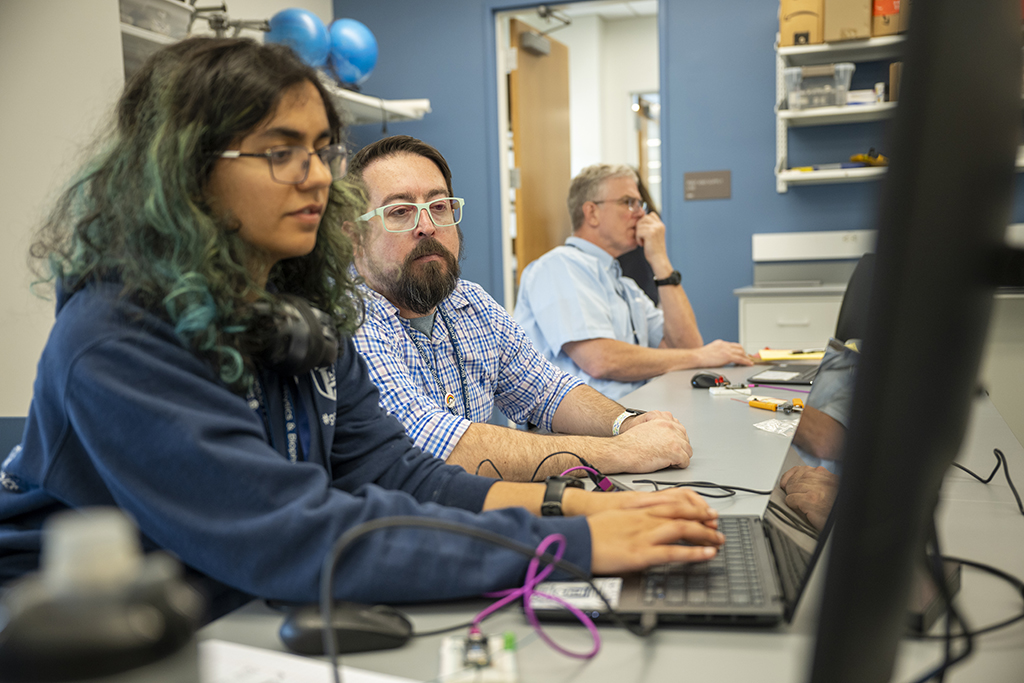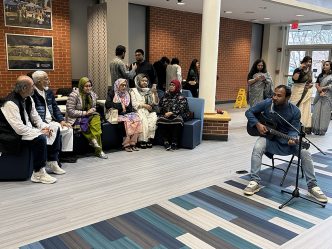Augusta University’s College of Science and Mathematics has been working with Augusta Utilities for more than a decade, providing students with opportunities to innovate solutions for daily issues the city’s water utility department faces.
CSM’s Augusta Utilities Summer Intern Program began in 2014 as a collaboration between Augusta Utilities and AU’s Department of Physics and Biophysics. The goal was to find ways to reduce the costs of stormwater management and gather more data related to water quality and stormwater management in Augusta. The original plan was to start with 30 rain gauges stationed around the city to correlate rainfall volumes to citizen complaints.
Chris Bates, PhD, an associate professor of biological sciences, introduced Arduino, an open-source electronics platform that uses micro-controllers, to Andy Hauger, PhD, a professor of physics, who then incorporated these devices into his curriculum. They have since been a focus of Hauger’s work with Augusta Utilities.
Oscar Flite, PhD, the former director of the Phinizy Center for Water Sciences at Phinizy Swamp Nature Park, and Wes Byne, the director of Augusta Utilities, were exploring surface water quality and the health of the Savannah River.
Flite approached Byne, who oversees drinking water and sewer programs for Augusta-Richmond County, about creating a partnership that focused on water and water quality. In 2014, Flite introduced Hauger and Byne, who attended the meeting with a box of Arduinos and other electronics, and the partnership was created. That led to AU students working on projects guided by Augusta Utilities.
“Oscar brought everybody to the table and said, ‘I see this kind of global partnership of a flagship university, a nonprofit and a public utility,’” Byne said. “He aligned us and showed us his grand vision, and you saw how everything’s interconnected. That was kind of the starting point for all of it.”
Working the program
The summer program began with one student, Michael Roeber, a computer science major with a physics minor. He developed a test unit to measure a rain gauge tipping bucket and set up an Arduino with a 2G cellular modem to send the data back from the field via SMS.
Byne called the original design “an incredible success” as it served them for about five years while they continually modified and updated it.
“He took electronics classes with me, and he was amazing at all of these things. He was good at coding and really good at putting things together and testing,” Hauger said.
Since then, the summer program has grown to include 10 students. Hauger said he observes his classes and labs, which he calls a “15-week job interview.” He doesn’t necessarily look for students with the highest GPA but wants those who immerse themselves in their work, especially in the lab. He knows the electronics because of the classes he teaches but needs team members with biology and chemistry knowledge.
“The biggest thing for me is I hope you can find a fit that you enjoy, and you’re not just showing up to do a job, but that you have something you’re passionate about here and for people of Augusta.”
Wes Byne, director of Augusta Utilities
The students typically have electronics experience from Hauger’s classes, which prepares them to apply that knowledge to real-world problem solving. The students learn to use their theoretical basis to develop tools that sense their environment and convert it to an electronic form, which can then be stored and shared.
Each year, the students develop and work on a project of their own creation or one they’ve taken on from previous students. The main goal is to address the needs of the water department at an affordable cost. The city also provides interesting problems that are accessible to students, including identifying parking spots that are available, when to empty trash cans and how to remotely sense whether the grass needs mowing. A Smart City initiative was started to address these needs.
“Everything is constantly evolving,” Byne said. “We need better people working with water. I think for me, when we grab students and say, ‘Let’s look at this, here’s a specific problem to look at,’ we have a lot of opportunities, so we bring them in, train them and hope they get exposed to stuff that lets them find something they find exciting.
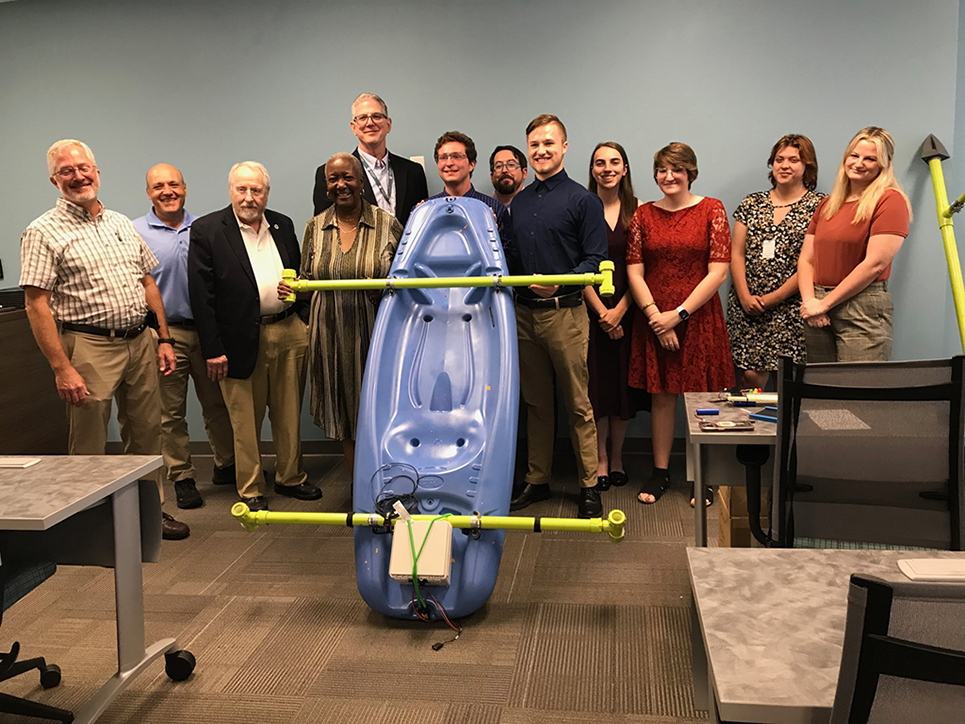
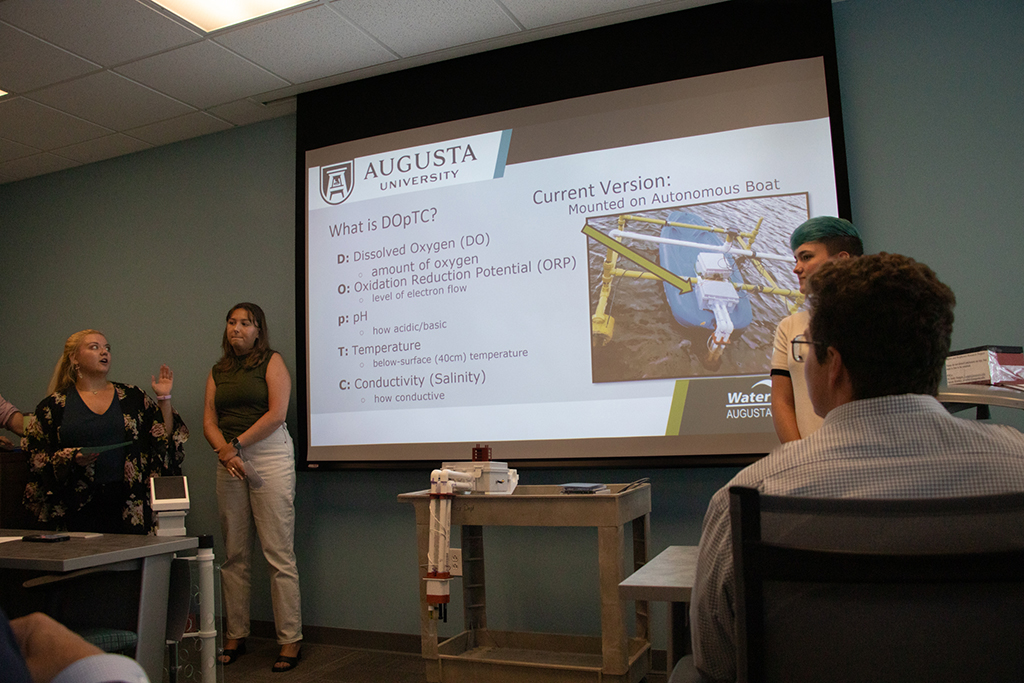
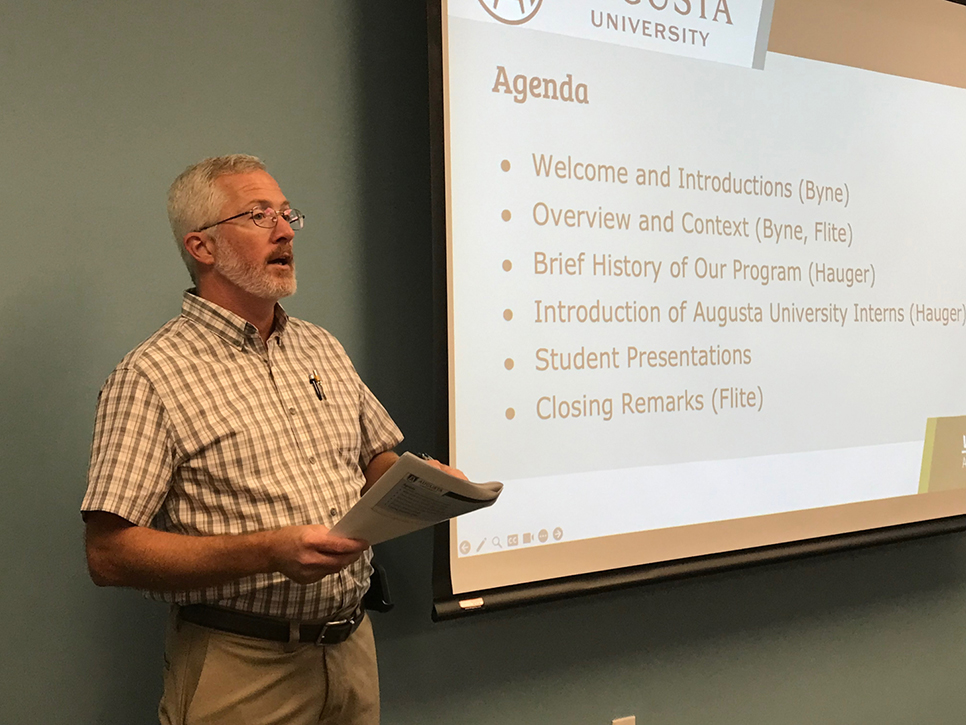
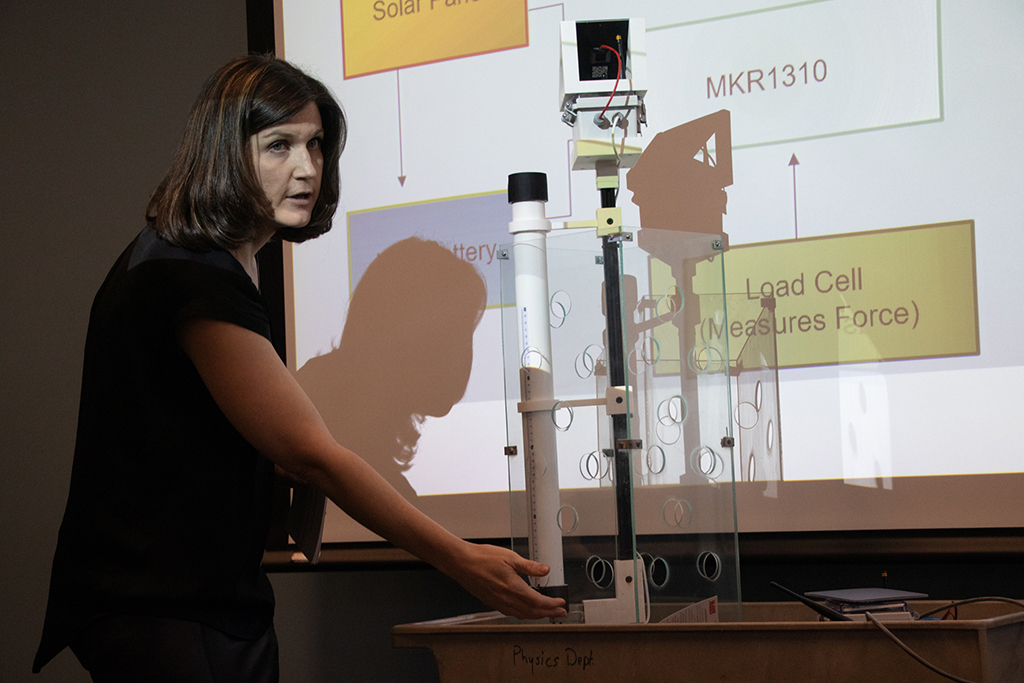
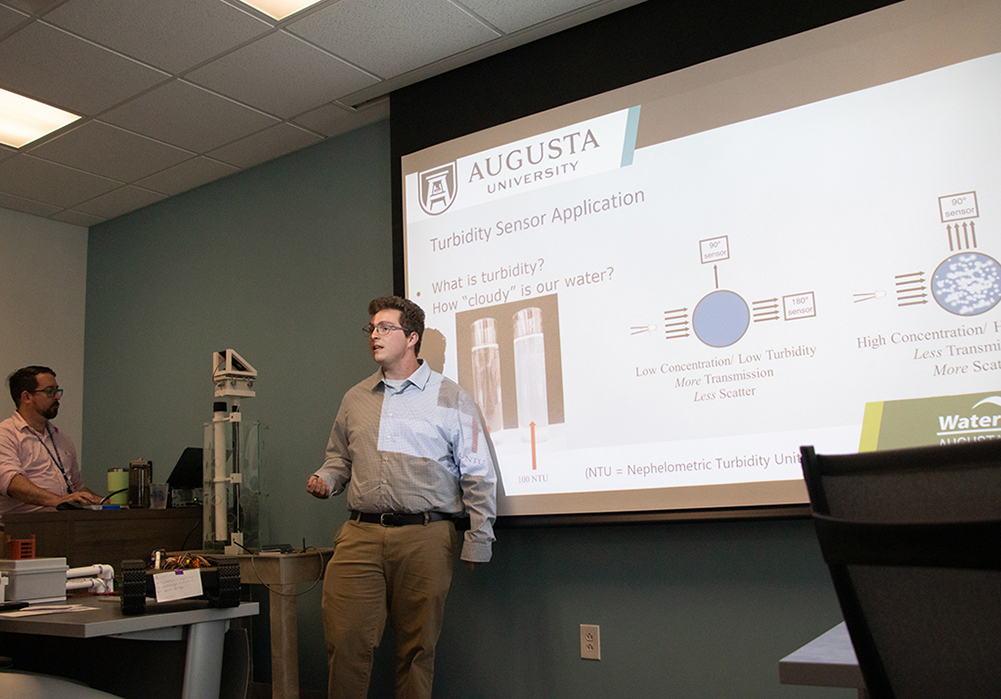
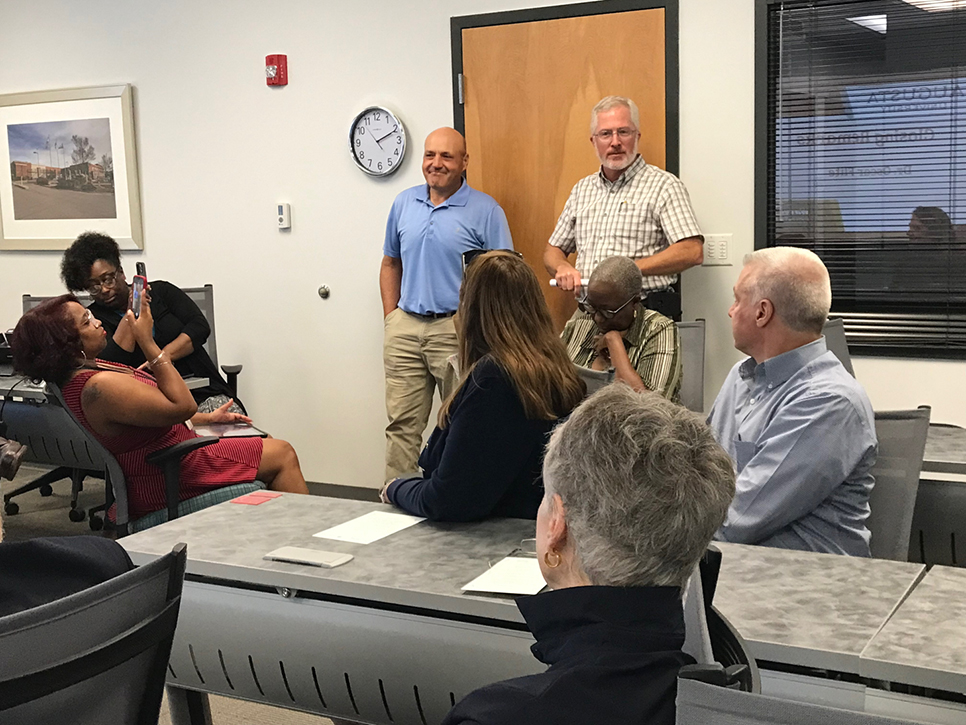

“The biggest thing for me is I hope you can find a fit that you enjoy, and you’re not just showing up to do a job, but that you have something you’re passionate about here and for people of Augusta,” he continued. “What I’ve seen is most people have a project that they really care about, and they try to work on that in order to keep themselves really engaged while helping the city.”
In 2024, some of the student projects included remote water quality monitoring, remote water depth sensing, a pipe mapping robot, as well as Smart City applications such as smart trash sensors.
Opportunity into employment
Dean Meyer was a cryptologic language analyst in the United States Army when he retired after 20 years and decided to go back to school.
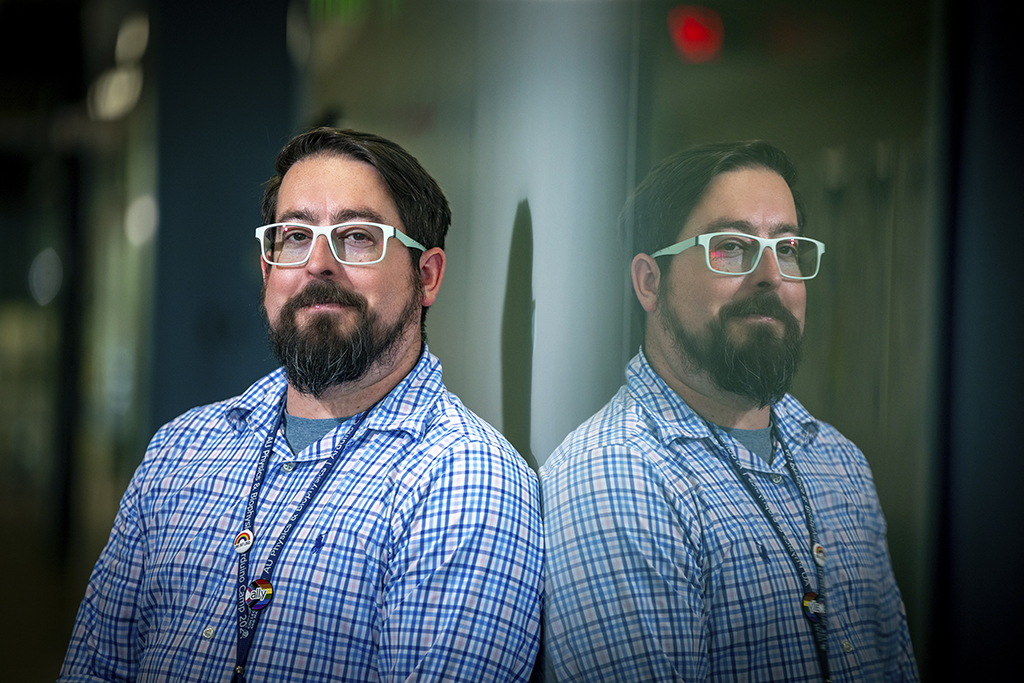
When he first decided to go back to school, Meyer wanted to study electrical engineering or data science, neither of which AU offered. However, his wife had just been accepted to the Biological and Computational Mathematics graduate program at AU, so attending another institution wasn’t an option for him.
“After some discussion with a few mentors and thinking about the people I had worked with in the past and their backgrounds and experiences, I decided that physics was the best path to get to what I wanted to do at the time,” Meyer said. “I met with Dr. Hauger early in my first semester, and we had a great discussion about what the physics program at AU offered and what I wanted to do. That just reaffirmed my choice and also led to my future research opportunities with him.”
Hauger said he noticed right away that Meyer already had a plan.
“He had a mentality of a senior enlisted person, and what that means to me is that he’s going to be someone that, if he knows what we’re trying to do, he’s going to go and find out how to do that,” Hauger said. “Dean was good at seeing things that needed to be done, even if I hadn’t noticed it. He’s good at anticipating.”
Meyer said, throughout his time at AU, the Physics Department faculty and staff were always supportive and helpful, specifically mentioning Hauger and Josefa Guerrero-Millan, PhD, who allowed him to do research with them. He also credits Trinanjan Datta, PhD, for encouraging him to stay engaged with AU’s Data Science conferences; his experiences in Datta’s introductory physics course that reinforced that he had made the right decision; and Joe Newton, PhD, for allowing him to participate in the Nuclear Science program.
“I absolutely wouldn’t have been able to complete my degree and accomplish my goals without the faculty members putting in the time and energy, whether in the classroom, after class hours or even on weekends for student study sessions,” Meyer said. “The physics students at AU are a small and pretty tight-knit community who are very supportive of each other and are always willing to help each other out. They were and always will be an important part of why physics students at AU have the success they do.”
Meyer first researched with Hauger in the spring of 2022, looking at Arduino-like microcontrollers capable of transmitting remote sensor data using long-range radio communications. Margaret Wade and Jazz Neal were working with Augusta Utilities on a turbidity sensor, and Nate Poole was working on some early autonomous navigation items.
Meyer’s research sought to enable some of that work, and that’s when he started learning about what Augusta Utilities and AU were working on together. He said the project sounded interesting and included pieces from a number of his interests, such as sensor development, data analysis and communications.
“When I was offered the chance to be a summer intern that year with Margaret, Jazz and Nate, I took it right away because I knew I’d get to do fun and interesting things and work with some great people.”
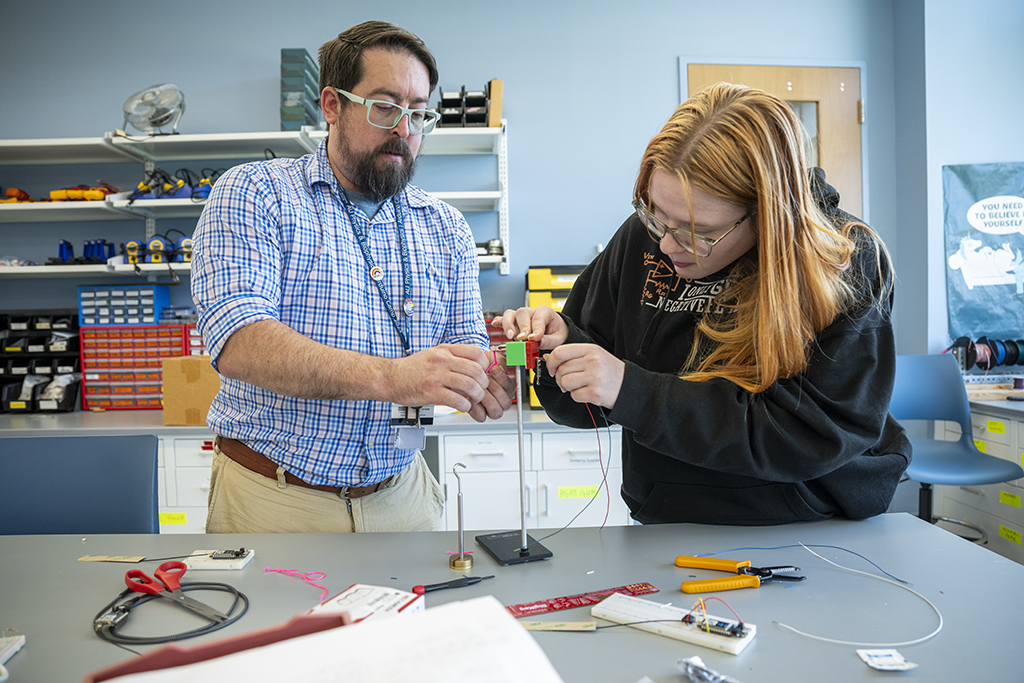
As his work continued with Augusta Utilities during his senior year, Meyer knew he’d be staying in the Augusta area. He talked to Hauger, who then mentioned it to Byne. Meyer and Byne talked and a position was offered.
“I’m responsible for the planning and execution of the upgrade to Advanced Metering Infrastructure for Augusta, and thanks to the support from Dr. Hauger and Dr. Tom Colbert, my role also allows me to spend time as a non-paid AU research affiliate still working with the research group to help move things from research prototypes to deployed sensors.”
 Augusta University
Augusta University
